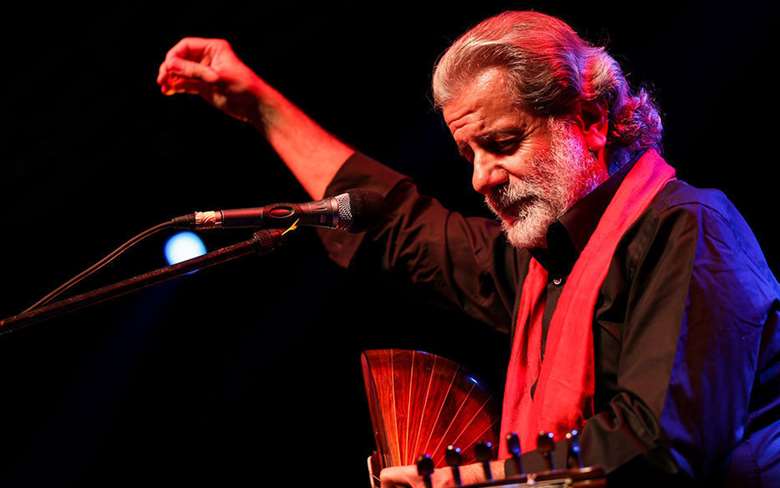Marcel Khalifé brings Lebanese humour and heart to Barbican show
Monday, October 7, 2019
The lute legend performs an inspired evening of music with his trio at top London venue

Marcel Khalifé, Lebanon’s leading classical oud master, describes himself as having “a rebel's soul... I rejected things that might be inherited, but that were wrong”. Naturally then, his career has always been a fine balancing act, exploring the traditional vocabulary of his forebears for its own strengths while also adapting the music for changing times and global audiences.
Last weekend he brought his 11-string fretless lute to the Barbican Hall for a superb trio performance, reinterpreting classic Lebanese folk songs with his son Rami on keyboards and Aymeric Westrich, an alumni of the Paris jazz scene, on drums. Their open-minded intentions were evident from the very start, moving seamlessly from a womb-like heartbeat drum ostinato into a Ghanaian-style 3/4 polyrhythm jam, before turning it into a thick, hypnotic synth loop (and leaving me pondering the hidden affinities between Sufi trance and Eurotrance).
The supporting cast maintained ample space and contrast even when coating the oud’s measured resonance with dream-swirl synths and frantic cymbal-crashing, often locked into intense, symmetrical headbanging as they pushed the music to ever-greater heights. Khalifé, a selfless bandleader, also drew on the considerable energy of the audience, laughing and joking with them in Arabic and several times requesting that the house lights be turned on to better orchestrate mass chanting.
But this was no ordinary singalong. The concert’s lyrical themes included pan-Arabism, the apartheid struggle in Palestine, and the legacy of siege and war in Beirut, moving many to tears as they danced in the aisles. In his words, “my music is for the service of humanity, and is intended to present a serious and sincere work for those tormented in this destructive war... a sort of balm for those wounds”. Most of those in attendance were old enough to have themselves lived through the savage 1975-1990 conflict, which killed over 100,000 and displaced a million more, including a sizeable contingent who migrated to London’s Edgware Road area.
Now 69, Khalifé has long been a symbol of liberation to many of his compatriots, embodying an eloquent blend of musical and political freedom while garnering global acclaim for their local music. A UNESCO ambassador, he risked his life by performing during bombing raids in the Lebanese Civil War and has donated prize money to humanitarian causes, ceaselessly railing against corruption, governmental injustice, and misperceptions of Islam in the West.
But while such outspoken boldness may not seem in the usual script for a former Professor at the National Academy, he has always embraced his dual role as a preserver and updater of tradition. Despite his revered classical status back home, Khalifé is first and foremost a folk artist, ever-inclined to give aesthetic shape to the human struggles of the day. After all, what could be more folk than reinterpreting your community’s core cultural vocabulary for changing technological and political times? Either way, I’ve witnessed few modern musicians who set themselves to the task with more aplomb – or success. In an increasingly unstable age, perhaps voices like his are the ones we need the most.
George Howlett | www.ragajunglism.org